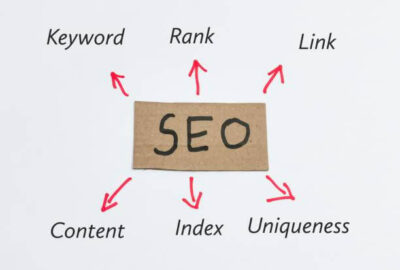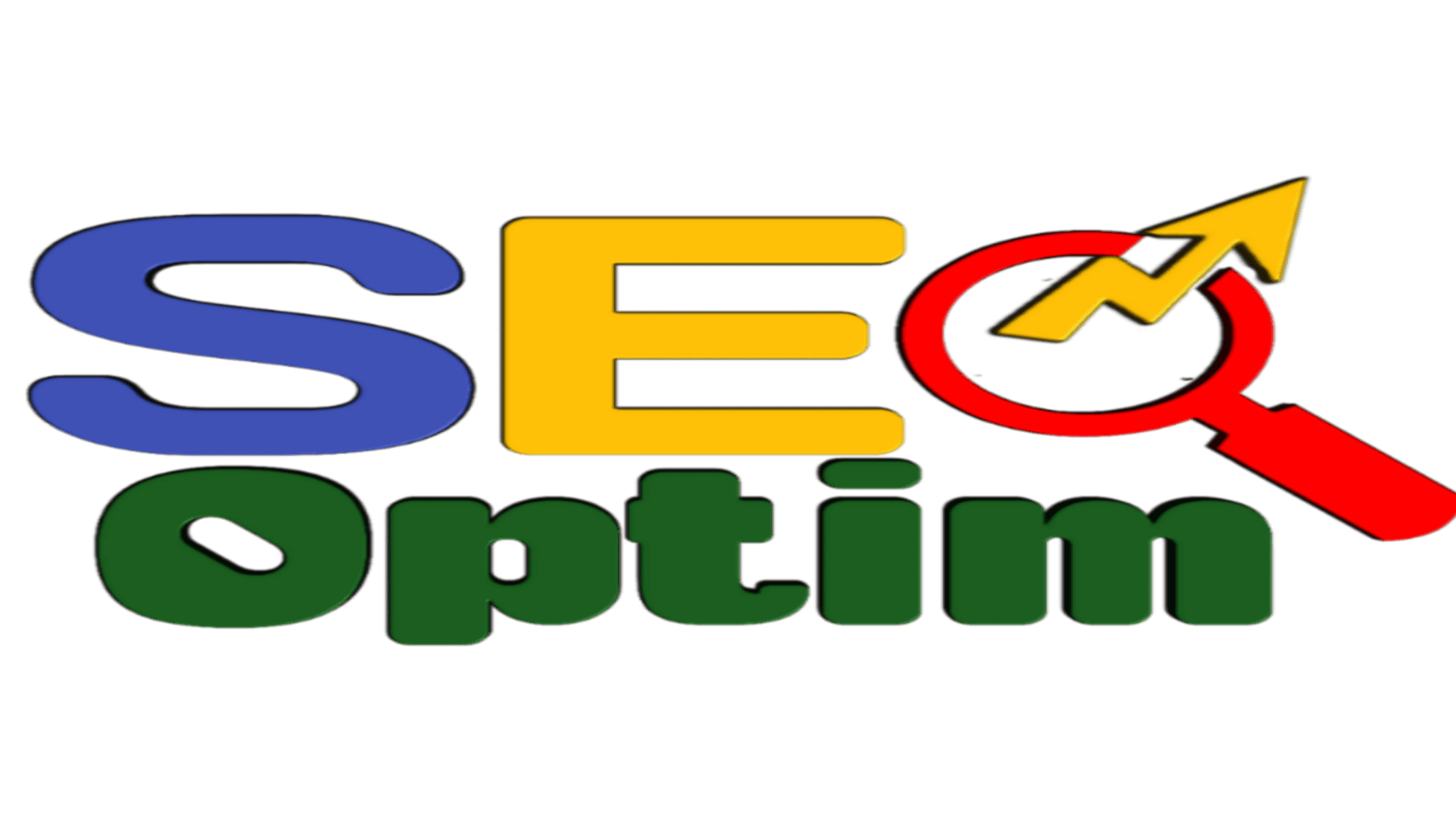Link building is a cornerstone in the realm of SEO, playing a pivotal role in enhancing a website’s visibility and authority in search engine results. Implementing a robust link-building strategy can significantly elevate your website’s visibility and ultimately lead to greater success in the digital landscape.
This article delves deep into the dynamic world of link building, elucidating its significance, relevance, and impact on modern SEO strategies.

What is link building for SEO?
Link building refers to the process of acquiring hyperlinks from external websites to your own. It involves strategically obtaining these inbound links (also known as backlinks) to increase a site’s credibility and visibility across search engines.
They are a critical facet of SEO, aiming to enhance a website’s visibility, search engine rankings, and overall online authority. The concept revolves around the notion that quality links pointing to your site from reputable sources essentially vouch for your content, indicating its worthiness and trustworthiness to users and search engines alike.
Is link building an SEO tool?
Indeed, link building is a powerful tool in the SEO arsenal. It acts as a catalyst, boosting a website’s authority, relevance, and trustworthiness in the eyes of search engines. These factors significantly contribute to improving a website’s online presence and rankings on search engine results pages (SERPs) by strategically acquiring quality backlinks.
In essence, link building isn’t a tool in the traditional sense but rather an integral strategy within the SEO toolkit.
Is link building still relevant in modern SEO strategies?
Absolutely! Links, when executed strategically, continue to hold paramount importance in the SEO landscape. They serve as a crucial signal for search engines to determine a website’s credibility, relevancy, and overall authority.
However, it’s imperative to emphasize quality over quantity when acquiring backlinks. Quality links from authoritative sources continue to be a driving force behind a website’s visibility and rankings in search engine results.
What makes links so important in SEO?
In the ever-evolving world of Search Engine Optimization (SEO), links continue to serve as a fundamental building block for achieving higher search engine rankings.
They are the backbone of a website’s credibility, visibility, authority, and an essential aspect of search engine algorithms. An effective link-building strategy, focusing on quality over quantity, remains a cornerstone of successful SEO practices.
How do backlinks benefit my business?
Amid this competitive landscape, link building emerges as a critical strategy that offers multifaceted advantages to businesses of all sizes. Let’s delve into how this pivotal tactic can bring transformative benefits to your business.
Brand building:
Establishing a network of high-quality backlinks helps in building brand credibility and recognition. When reputable sites link to your content, it enhances your brand’s authority and trustworthiness.
Enhanced visibility and send organic traffic:
Link building serves as a beacon, guiding search engines towards your website. Quality backlinks from reputable sources elevate your site’s authority, making it more visible in search results. As your website climbs the ranks, it attracts increased organic traffic, driving potential customers to your website.
Creating connections:
Link building isn’t merely about acquiring backlinks; it’s also about forging connections within your industry. Collaborating with influencers, businesses, or publications for backlink opportunities can pave the way for mutually beneficial partnerships, expanding your network and fostering growth.
Improved search engine rankings:
The quantity and quality of backlinks significantly impact search engine algorithms. Websites with a robust backlink profile tend to secure higher rankings on SERPs. Link building acts as a vote of confidence from other sites, signaling to search engines that your content is trustworthy and relevant.
Establishing credibility and authority:
Backlinks from authoritative domains contribute to building your brand’s credibility. When esteemed websites link to your content, it reflects positively on your brand’s expertise in your industry. As a result, users are more likely to trust your offerings and view your business as a reliable source of information.
Targeted audience reach and engagement:
Strategic link-building can help your business reach a more targeted audience. Backlinks placed on relevant websites in your niche attract users genuinely interested in your products or services. These users are more likely to engage with your content, leading to increased conversions.
Driving referral traffic and conversions:
Quality backlinks act as referral pathways, directing users from other websites to yours. Users who arrive via these links are pre-qualified, making them more likely to convert. High-quality traffic stemming from relevant backlinks often translates into increased sales or conversions.
Improved search engine rankings:
The quantity and quality of backlinks significantly impact search engine algorithms. Websites with a robust backlink profile tend to secure higher rankings on SERPs. Link building acts as a vote of confidence from other sites, signaling to search engines that your content is trustworthy and relevant.
Link building strategy
In the dynamic landscape of SEO, a well-structured and effective link-building strategy remains pivotal for enhancing a website’s authority and visibility. Employing diverse methods and adhering to best practices can significantly impact a site’s rankings. Let’s delve into some essential techniques:
Getting links from competitor’s backlinks
Examining competitors’ backlinks is one of the tried-and-tested techniques that can provide valuable insights. Identifying their linking sources allows for outreach to similar domains, and can significantly contribute to fortifying your website’s backlink profile and amplifying its SEO performance.
Once you identify the websites linking to your competitors, you can explore outreach opportunities and ethical practices with those same domains. Initiating contact with these websites, showcasing your content’s relevance or value, and proposing a link to your complementary content can potentially secure backlinks.
Outreach
Engaging in outreach campaigns involves connecting with relevant websites, entities, influencers, or content creators to acquire backlinks to your website. It embodies a proactive approach to establishing connections and collaborations within your niche or industry.
The goal is to propose content or resources from your site that are valuable, relevant, and worthy of being linked to from their web pages.
Key elements of a successful outreach strategy
- Relevance: Ensure that your outreach targets are relevant to your niche or industry. Relevance strengthens the potential impact of acquired backlinks on your website’s authority and SEO.
- Quality content: Offer valuable and high-quality content or resources that compel others to link to your website naturally.
- Ethical practices: Uphold ethical standards in your outreach efforts. Avoid manipulative tactics or spammy practices that may harm your website’s reputation.
Creating link-worthy assets
Developing high-quality content, such as infographics, guides, or tools, encourages other websites to link back to your content. Valuable and shareable assets serve as a strategic approach to attracting valuable backlinks organically.
Key elements of creating link-worthy assets
- Comprehensive research: Conduct thorough research within your niche to identify gaps or areas where your content can offer value and fill the void.
- Content optimization: Optimize your content for search engines by incorporating relevant keywords, and meta tags, ensuring it aligns with search intent.
- Promotion strategy: Actively promote your link-worthy assets through various channels to increase visibility and attract potential backlinks.
Earning links
Earning links revolves around producing high-quality, relevant, and authoritative content that naturally attracts attention and encourages others to reference and link to it. This approach prioritizes user value and credibility over aggressive link acquisition tactics.
Strategies for earning links
- Content excellence: Develop compelling content that offers unique insights, in-depth analyses, or solves prevalent issues within your niche. Engage your audience by creating informative blog posts, guides, case studies, or interactive tools.
- Outreach and networking: Establish genuine relationships with industry influencers, bloggers, and webmasters. Engage in collaborative efforts, contribute to discussions, and offer value, which may lead to them naturally linking to your content.
- Guest posting: Contributing high-quality content to reputable websites in your industry allows you to showcase your expertise while earning valuable backlinks in return.
- Press releases and public relations: Share newsworthy updates or milestones related to your business to attract attention from media outlets, leading to natural link placements.
- Social media engagement: Active participation and sharing of valuable content across social media platforms can result in increased visibility and potential link opportunities.
Benefits of earning links
- Long-term sustainability: Earning links provides a more stable and sustainable approach to backlink acquisition, reducing the risk of penalties associated with manipulative link-building practices.
- Enhanced credibility: Links earned through genuine interactions and high-quality content showcase your website’s authority and credibility, strengthening its position in search engine rankings.
Promoting content
Promoting content involves actively disseminating and marketing your valuable content to various channels, including social media, forums, industry-related websites, and audiences to increase its visibility and attract attention. When strategically executed, content promotion can significantly amplify your chances of acquiring backlinks.
Effective strategies for content promotion
- Leveraging social media platforms: Share your content across different social media platforms where your target audience is active. Engage with users, groups, and communities by providing value, encouraging discussions, and subtly promoting your content.
- Email outreach: Reach out to industry influencers, bloggers, and webmasters who might find your content valuable. Craft personalized and non-intrusive emails highlighting the relevance and benefits of linking to your content.
- Content syndication: Submit your content to relevant online publications, forums, and content aggregators. These platforms can extend the reach of your content and potentially attract backlinks from readers or contributors.
- Collaborations and partnerships: Collaborate with other businesses, content creators, or influencers in your industry. Joint ventures or partnerships can lead to mutual content promotion, exposing your content to new audiences and increasing its chances of being linked to.
Benefits of promoting content for backlinks
- Increased exposure: Effective content promotion expands the reach of your content, exposing it to a wider audience and increasing its chances of being noticed and linked to.
- Enhanced credibility: When your content is shared and referenced across reputable websites and social platforms, it bolsters your website’s authority and credibility, leading to improved rankings.

Buying links
People buy links because they lack time and resources for organic link-building themselves; this is particularly true of small businesses without dedicated content and link-building teams.
As an alternative, some marketers resort to buying links to speed up the process of organic link building and improve SEO ranking, although this strategy violates ethical SEO practices and could have dire repercussions for your site’s reputation and overall ranking.
Too many unnatural-looking links could prompt search engines to penalize your website; to prevent this from happening, limit yourself to purchasing backlinks and establish a strategy to build natural-looking links.
Reclaiming lost backlinks
Reclaiming lost backlinks in the realm of SEO refers to the process of regaining valuable links that were once directed towards your website but have since been lost or removed. These links are essential because they contribute significantly to your website’s authority, trustworthiness, and overall search engine ranking.
When a backlink that was initially pointing to your site becomes unavailable or broken, it can negatively impact your SEO efforts. This loss might occur due to various reasons, such as a website restructuring, content removal, or a simple error in the URL.
Here are a few steps on how to reclaim lost backlinks effectively:
- Identify lost backlinks: Utilize tools like backlink analysis software to identify links that were previously directed to your website but are now inactive or removed.
- Contact Webmasters: Reach out to the webmasters of the sites where these lost backlinks were initially placed. Politely inquire about the removed or broken link and request that it be reinstated or fixed.
- Provide alternatives: If the webmaster has removed your link due to content changes, offer alternative content or suggest a different relevant page on your website that could replace the lost link.
- Create a 301 redirect: In cases where the link points to an outdated or removed page on your site, consider implementing a 301 redirect. This action redirects traffic from the old URL to a relevant and active page on your website.
- Regular monitoring: Continuously monitor your backlink profile to promptly identify and address any further instances of lost or broken links.
Link building vs. backlinks
While link building refers to the active process of acquiring or earning links from external sites, backlinks are the actual hyperlinks that are acquired or earned through link building efforts. In essence, link building is the strategy, and backlinks are the result of executing that strategy.
Link building:
Definition: Link building is a proactive strategy employed by website owners or marketers to acquire or generate external hyperlinks from other websites to their own.
Process: It involves various techniques and methods aimed at creating connections (or links) from other authoritative and relevant websites back to your own. These techniques might include guest blogging, outreach campaigns, content creation, and networking within your industry.
Objective: The primary goal of link building is to enhance a website’s authority, trustworthiness, and visibility in search engine results. High-quality links from reputable sources serve as an endorsement of a site’s credibility, signaling to search engines that the content is valuable and worthy of reference.
Backlinks:
Definition: Backlinks, also known as inbound links or incoming links, are the hyperlinks placed on external websites that lead back to a specific webpage on your site.
Nature: Backlinks are the result of successful link building efforts. They are essentially the individual links pointing back to your site from other web pages across the internet.
Value: Backlinks are considered one of the most critical factors in SEO. Search engines like Google use backlinks as a significant ranking factor to assess a website’s authority, relevance, and trustworthiness.
Crafting a successful link-building strategy involves a balanced mix of these techniques. Implementing these methods while prioritizing quality, relevance, and ethical practices is key to fostering a strong and resilient link profile.
Types of link building and their vital components
Link building in SEO involves several strategies aimed at acquiring high-quality backlinks to enhance a website’s authority and visibility in search engine results. Each type of link building relies on specific components crucial for its success.
Page authority:
Meaning: Page authority refers to the measure of a webpage’s strength and credibility. Acquiring links from pages with high authority boosts the value of backlinks.
Site authority:
Meaning: Similar to page authority, site authority reflects the overall strength and trustworthiness of an entire website. Links from high-authority domains have more significant impact.
Relevance of the website:
Meaning: The relevance of the linking website to your site’s niche or industry is crucial. Relevant links are more valuable for SEO.
Placement of the link on the page:
Meaning: The location of the link within the content or webpage matters. Links integrated naturally within the content tend to carry more weight.
Hyperlink anchor text:
Meaning: The text used for hyperlinking (anchor text) plays a significant role. Relevant and descriptive anchor text can positively impact SEO.
Destination:
Meaning: The landing page to which the link directs matters. It should align with the content of the linking page.
Is the source of the link a guest post?
Meaning: Links gained through guest posting involve creating content for external sites to include backlinks to your website. This method ensures a relevant context for the link.
Is the link nofollow or dofollow?
Meaning: Nofollow links don’t pass authority, while dofollow links do. Dofollow links are more valuable for SEO, but a mix of both is considered natural.
Link building strategies involve understanding and utilizing these components effectively. A well-rounded approach combining various types of link building based on these components can significantly boost a website’s SEO performance.
Link building practices to avoid
Link building forms a critical part of SEO, but certain practices can harm rather than help your website’s rankings. Here are some examples to steer clear of:
Bought links:
- Meaning: Purchasing links from websites or services explicitly for SEO purposes.
- Reason to Avoid: Search engines penalize bought links as they violate their guidelines, aiming to manipulate rankings artificially.
Exchange of links or reciprocal linking:
- Meaning: Engaging in a quid pro quo arrangement where sites link to each other.
- Reason to Avoid: While a few reciprocal links are acceptable, an excessive number can seem manipulative, signaling a lack of genuine, organic links.
Low-quality directory links:
- Meaning: Getting backlinks from low-quality directories that exist solely for link-building purposes.
- Reason to Avoid: Directories with poor content quality and low authority provide negligible value and might lead to search engine penalties.
Link building via these methods may seem like a quick way to gain backlinks, but they’re considered black-hat techniques by search engines. Engaging in these practices can harm your website’s credibility and visibility in search results.
Link building sites
Link building sites are platforms where you can acquire or exchange links for your website. They come in various forms:
- Guest posting platforms: Websites that facilitate guest blogging, allowing you to contribute content in exchange for a backlink.
- Directories: Online directories where you can submit your website’s information for inclusion and potentially receive a backlink.
- Forums and communities: Platforms where you can engage in discussions relevant to your industry, often including opportunities to leave your website link in the discussion.
Link building tools
Link building tools assist in analyzing, monitoring, and improving your website’s backlink profile. Some popular tools include:
- Ahrefs: Helps in analyzing backlinks, identifying link opportunities, and monitoring your link profile.
- Moz Link Explorer: Offers insights into link metrics, spam score, and competitive analysis.
- Semrush: Assists in analyzing competitor backlinks, identifying link gaps, and managing link-building campaigns.

Conclusion
Link building remains a critical component of SEO strategies, impacting website authority and search engine rankings. While link building sites offer avenues for obtaining backlinks, it’s crucial to prioritize quality over quantity. Utilizing link building tools allows for comprehensive analysis, ensuring a strategic approach to acquiring and managing backlinks.
In conclusion, successful link building requires a balanced mix of leveraging link building sites ethically and employing effective tools to enhance your website’s link profile. By maintaining a focus on quality, relevance, and diversification, you can achieve sustainable and impactful results for your SEO efforts.
Subscribe to our newsletter!

2 Comments
Comments are closed.